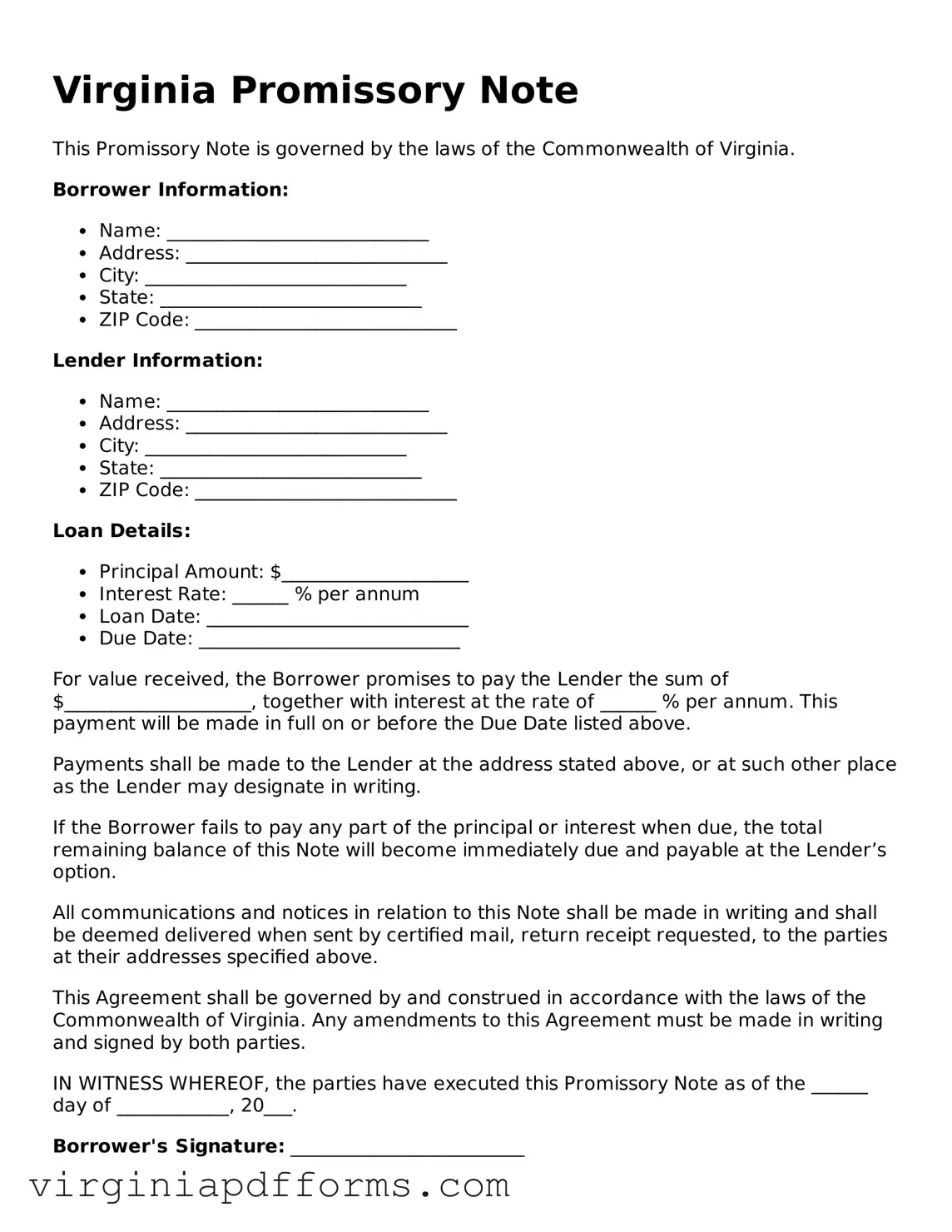Attorney-Approved Virginia Promissory Note Document
A Virginia Promissory Note is a written promise to pay a specified amount of money to a designated party at a future date or on demand. This document serves as a legal instrument that outlines the terms of the loan, including interest rates and repayment schedules. Understanding its components is essential for both borrowers and lenders to ensure clarity and enforceability in financial transactions.
Access My Document Now

Attorney-Approved Virginia Promissory Note Document
Access My Document Now

Access My Document Now
or
Free Promissory Note File
Need this form wrapped up fast?
Finish Promissory Note online — edit, save, download without effort.